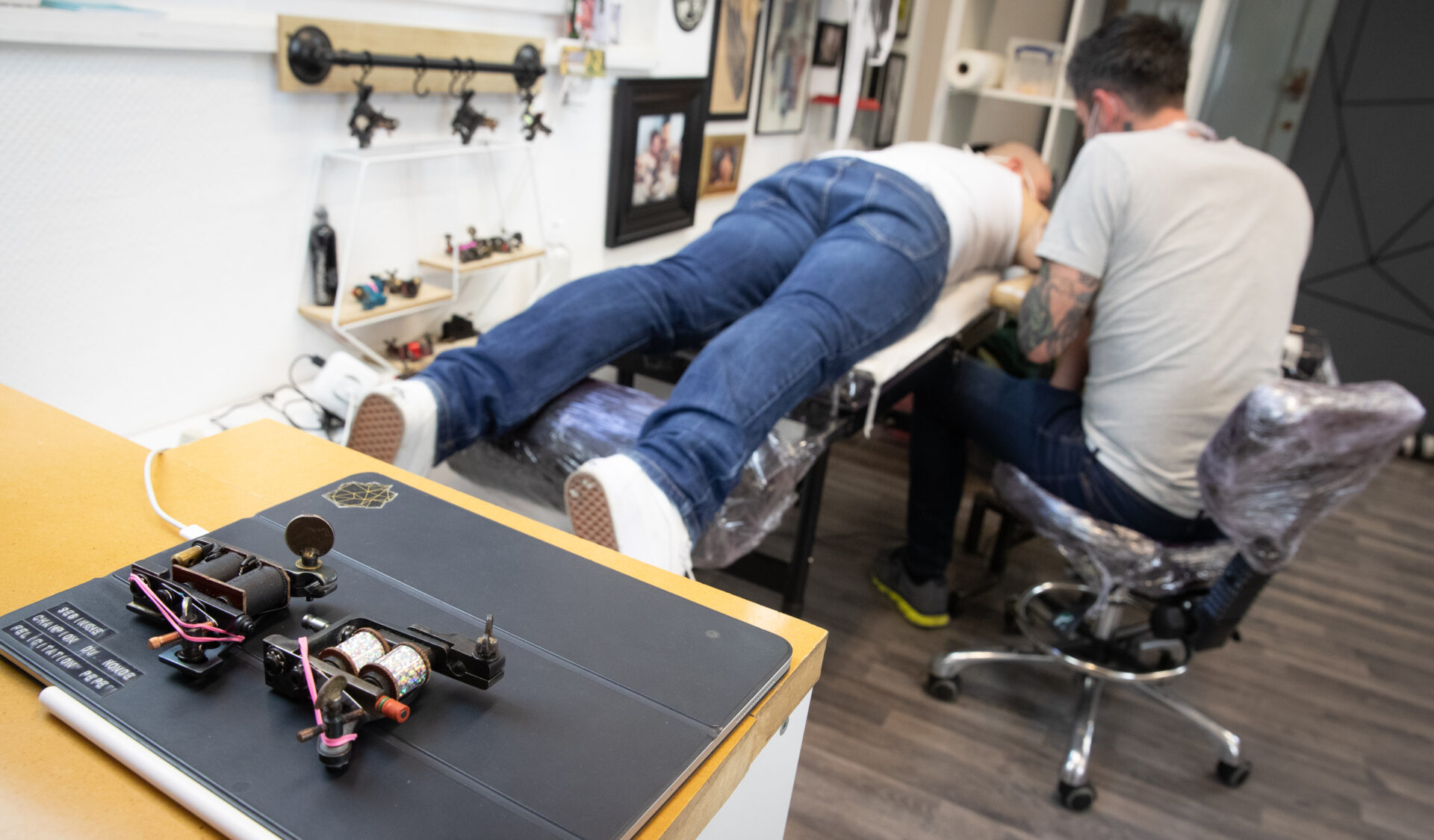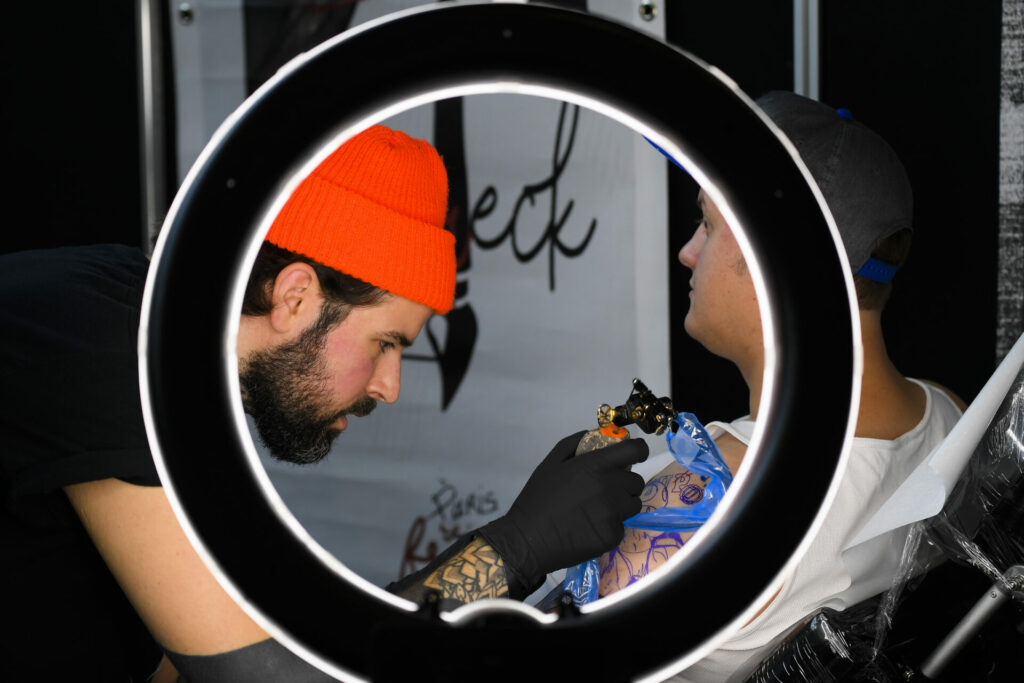The number of tattoo shops in Belgium is increasing rapidly, bringing the need for clearer regulations as many are in violation of the current laws regarding registration and hygiene.
Since 2012, the number of licensed tattoo artists has risen from 266 licensed tattooists to 1,995, with tattoo parlours also increasing. But regulations (based on a Royal Decree dating back to 2005) have hardly changed. As a result, eight in ten tattoo shops that were checked between 2019 and 2021 were not fully compliant, according to reports from Het Nieuwsblad.
Most violations concern hygiene rules while a quarter were against registration rules. "No registration means that you can't check whether proper training has been carried out," said CD&V member of parliament Els van Hoof, who requested the figures from Public Health minister Frank Vandenbroucke.
Based on data published by the FPS Public Health in 2020, some 500,000 tattoos are applied each year, posing a potential health risk. "This training is really necessary to know the hygiene procedures, the importance of sterilisation, required first aid... There are risks associated with tattoos, as infections can develop," van Hoof said.
Repeated call for improvements
Already in 2020, half of tattoo shops were not in compliance with the law. "Anyone who wants a tattoo must be sure that this can be done in safe and hygienic conditions. That is why checks on hygiene and safety remain crucial," van Hoof said at the time.

Many violations were in relation to expired needles and ink, which can lead to infections. Credit: Belga
Parlours found to fall short of legal requirements – from failing to warn customers of health risks to working with expired needles – receive a warning, which is followed up with an inspection to ensure that the necessary corrections have been made.
In the case of serious or repeated violations, the Federal Health Inspector (FGI) is informed, which can result in shops being closed.
Ongoing consultation
Van Hoof has repeated her call for more controls as well as clearer guidelines: "It is imperative that Vandenbroucke consults with the sector, that inspections are increased and that an official report can be drawn up during inspections, which is currently not the case."
According to the Belgian Bond of Tattooists which represents the sector, the rules are outdated and lack clarity: "The legal terms that customers have to sign (before having a tattoo) is not provided by the government," the organisation's Wim De Muylder said. However, he said consultation is underway and making progress.
"This should result in an agreement between the government and tattoo artists in the autumn."

